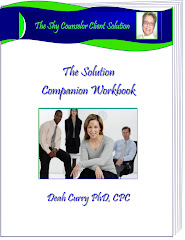And it's not just my ND clients who have trouble with this claim. My counselor clients also feel inhibited about calling themselves a specialist. Naturopathic doctors and psychotherapists alike are trained to be generalists, and marketing as a specialist rubs uncomfortably against that.
Plus, let's face it, a lot of us in the healing arts are recovering from poor self-esteem and low confidence. It stretches our own belief in ourselves to say out loud that we have expertise in anything. If I could give us all a pill for that, the magic med would erase all the early life programming we've experienced that damaged our self-concept as relates to the joyful quality we naturally have in childhood when we KNOW we can do anything.
But I digress. One way around this marketing need to project expertise, while still staying in integrity with the truth, is a very simple language shift. In the examples here, do you spot the difference?
- I'm an expert anxiety counselor. Or, My expertise is in eliminating anxiety and depression.
- I specialize in helping women with anxiety gain confidence and freedom from debilitating worry.
The second example defines a narrow scope of interest and merely says this is where I put most of my attention -- it's what I like doing best. The focus remains on the client type, their problem, and the result they want, rather than staking a claim about myself. It directly states that my role is facilitation of the client's work.
The second example is much different in that it doesn't claim to know everything about anything. It simply states what is true from day one after graduation -- I'm a helper.
If you are graduating this spring as an ND or a therapist and you can't say you're a helper -- well, why did you choose this profession?













No comments:
Post a Comment